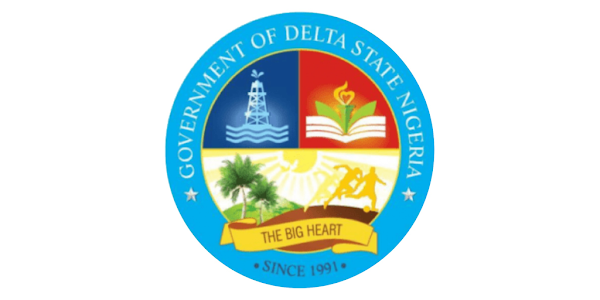-
Partners NEMA, World Bank On Emergency Preparedness, Response
BY DONALD OJEBO/ STELLA AGBEYEKE
THE Delta State Government has reiterated its commitment to delivering reliable, affordable, and sustainable electricity solutions to citizens, leveraging the bold reforms of the National Electricity Act of 2023.
The Act has removed electricity generation and distribution from the Exclusive Legislative List to the Concurrent List, allowing sub-national governments to actively participate in the sector.
The Delta State Commissioner for Energy, Hon. Sunday Tataobuzuogwu, made this known to newsmen in Asaba.
Tataobuzuogwu revealed that the state government is currently in discussions with potential investors from within and outside the state on various partnership models to boost power generation and distribution.
He emphasised that successful investors would be unveiled as soon as the State’s Electricity Regulatory Commission is established.
Describing Governor Sheriff Oborevwori as “a rare bred” for his far-reaching development initiatives across critical sectors, the commissioner noted that investors are increasingly drawn to Delta State due to its investor-friendly stance on the Ease of Doing Business.
He added that the state’s significant gas reserves further incentivize investment.
“Since it is easier and cheaper to get gas in the state compared to outside, availability of power will undoubtedly drive economic activities, and very soon Delta will become the investment hub of Nigeria,” he said.
Reflecting on achievements recorded during Governor Oborevwori administration over the past two years, he said “Some communities, which previously had no nightlife now do, thanks to the government’s interventions, such as installing street lights, lighting up roundabouts and markets, thereby boosting economic activity in those areas.”
To expand electricity access, the commissioner explained that his ministry has already supplied transformers to many communities and continues to procure more to ensure wider connectivity across the state.
He also disclosed plans to roll out solar mini-grids in hard-to-reach, riverine and off-grid areas, to cater for underserved populations.
Regarding affordability, Tataobuzuogwu stressed that consumers must be prepared to pay for power consumed, as the government would not subsidize electricity costs.
Meanwhile Delta State Governor, Rt. Hon. Sheriff Oborevwori, has described workshops and training as vital tools for fostering collaboration and enhancing the capacity of stakeholders in the effective management of emergencies.
Governor Oborevwori made this remark during a two-day workshop on Emergency Preparedness and Response (EP&R) stakeholders’ engagement organized by the National Emergency Management Agency (NEMA), in collaboration with the World Bank Group and the Delta State Government.
The event took place at the Professor Chike Edozien Secretariat, Maryam Babangida Way, Asaba.
Represented by the Commissioner for Special Duties, Government House, Dr Ifeanyi Osuoza, the Governor expressed appreciation for the initiative and commended NEMA and the World Bank for their commitment to improving emergency management strategies in the state and across the country.
He highlighted the importance of such workshops in equipping stakeholders with the skills and knowledge to respond effectively to emergencies, thus safeguarding the well-being of the community. Governor Oborevwori also called for continued collaboration among agencies and stakeholders to strengthen the state’s emergency response framework.
The Senior Director for Risk Management at the World Bank Group, Mr Francis Nkoka, emphasized the need for greater engagement in flood preparedness.
He urged stakeholders to embrace their roles in preparing for floods, noting that a collective effort is essential to enhance readiness and response.
Nkoka explained that the World Bank’s intervention in selected flood-prone states aims to promote early preparedness and develop policies to prevent loss of lives and property.
Speaking on behalf of the Director-General of NEMA, Mrs Zubaida Umar, the Director of NEMA South-South Directorate, Dr Godwin Tekpikor, stressed the importance of heeding impending flood warnings from NIMET and preparing early to avoid being caught unawares.
He noted that Nigeria had previously suffered significant losses due to flooding and other natural disasters, underlining the need for proactive planning.
While applauding the World Bank’s support, Mrs. Umar affirmed that NEMA would continue working closely with relevant stakeholders in disaster management, moving away from a reactive approach towards proactive measures centred on stakeholder engagement.
In his address, the Director, Delta State Emergency Management Agency (SEMA), Mr Alfred Ebreneyin, who represented the Commissioner, Bureau for Special Duties, Hon Ejiro Etacherure, welcomed the World Bank and NEMA’s intervention, describing it as timely. He noted that it would strengthen stakeholders’ capacity in disaster control and prevention.
He also emphasised that flood preparedness is a shared responsibility and highlighted the state government’s proactive measures, including sensitisation campaigns in flood-prone local government areas.


